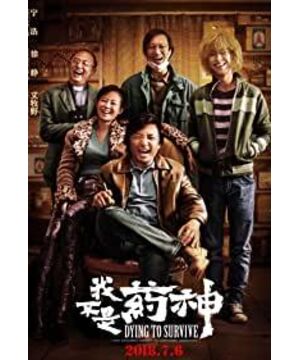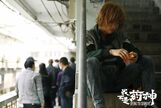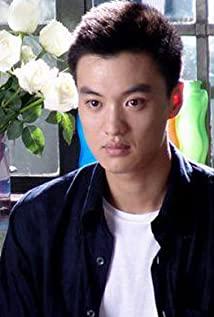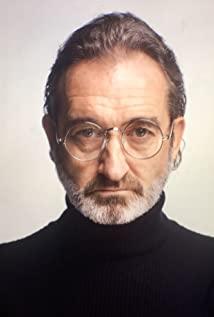I watched "I'm Not the God of Medicine" with great expectations. Personally, I felt that the 9 points that were promoted by marketing and netizens was seriously overrated. In fact, this is just a relatively well-finished commercial film, and it is on the same level as other similarly well-finished commercial films such as "Fuck Off Tumor", "Wolf Warrior", "Golden Robbery", etc. (Including in the word-of-mouth of netizens) the "realism" that constantly prides itself on, I personally feel that not only is it not "realism", but the creators even carried out "anti-reverse" for "kitty", cheap sensationalism and populist incitement. Reality".
"I'm not the God of Medicine" can trigger such an unprecedented good reputation, mainly for two reasons: a mature script and a theme that cuts the pain of the Chinese people. "The God of Medicine" has a very mature and well-developed script, using good skills from character building to dramatic conflict, in other words - very good at telling a story. The Chinese audience's viewing habits are the pursuit of "story" and "drama", but after the fifth-generation anti-traditional narrative was raised, ordinary Chinese audiences found that mainland directors are less and less able to tell stories. . The core of the story of "The God of Medicine" is actually the idea of a typical hero film: a story of "a little person with some shortcomings slowly grows into a hero". Although I never think that commercial films and literary films are superior or inferior, attaching the word "realism" to the film God of Medicine is a bit too flattering. As a film that takes commerciality as the criterion in terms of adaptation ideas, characterization, and sensational skills , it is not only unrealistic, but also deliberately blurs the real reality in order to strengthen the "greatness" of the protagonist . And the reason why it feels realistic may be because too many movies are whitewashing peace, and at least it dares to say "poor" and "illness".
1. An adaptation of the underlying motivation
In the prototype incident, Lu Yong himself was a chronic myeloid leukemia patient. In order to save his life, he came into contact with Indian generic drugs, and then he helped others to buy it together. In the movie, the creators adapted the most crucial character's basic motivation, portraying Lu Yong as a middle-aged diaosi whose career, love, and family have all failed. " was changed to "making money", although the purpose of "making money" is also another level of "self-help" (or self-evidence, saving a sick father and raising a son can also be seen as a frustrated middle-aged man facing his family. A self-evidence of competence and self-esteem conducted). Such a change of thinking clearly reflects the creator's "business thinking". They know that "a patient's self-help" is far less extensive and strong than "a frustrated middle-aged person's self-help" can resonate, especially In China, "class shame" and "self-evidence" have become typical group psychology of Chinese people at the bottom. The audience empathizes with "frustration in life and bumping into walls everywhere", and is keen to watch "Diaosi Counterattack".
At the same time, due to the previous efforts to create the protagonist Cheng Yong's "frustrated predicament" and the "minor shortcomings" of the character's character, some series of "selfless" and "brave" behaviors of the protagonist will also appear more splendid. The contrast between the front and back caused by the skills also makes the audience convinced and deeply moved by the "growth" of the characters. In real events, Lu Yong has always been Lu Yong, and he does not have such a turbulent "heroic evolution history". So in a nutshell, as a movie with prototype events, the creator tampered with reality and the most important basic motivation for the characters in order to sensationalize, resonate, and please the audience. The consequence of tampering with the basic motives is that the audience focuses more on the "self-evidence of the little people", and puts their emotions on the growth of the hero, rather than the contradiction between the patient's needs and the medical insurance system, and this contradiction is actually the This is the real core contradiction of the Lu Yong incident. To put it in a big way, it is the contradiction between individual needs and the guojia system.
2. About the secret exchange of core contradictions
The contradiction reflected in the prototype incident is the contradiction between individual needs and the guojia system. Of course, the creator is very clear that such a contradiction cannot be written, and if it is written, it may not pass the trial, so the creator secretly changed the "core contradiction" again. The contradiction between the patient and the medical insurance system (individual needs and the guojia system) was secretly replaced by the contradiction between the high price monopoly of pharmaceutical groups, the ruthless law enforcement by law enforcement officers, and the spread of poverty and disease among the working people. "Contradiction with "law".
Maybe the author is borrowing from "Dallas Buyers Club", but the pharmaceutical group in Dallas is ignoring the great toxicity of AZT to the human body, and in order to obtain benefits, it cooperates with doctors to carry out clinical promotion of drugs, while Gleevec of Switzerland invested more than 80 billion US dollars in research and development, Its high price and the deception of AZT's toxicity by the Dallas Chinese Pharmaceutical Company are completely different, but in order to strengthen the great aura of the protagonist, the creators portrayed the pharmaceutical company as a cold-blooded villain with capital and rights, in order to mobilize the audience's tears, When adapting real events, the opposition between "love" and "law" is deliberately strengthened, and even a scene in which an old lady takes the policeman's hand and weeps about poverty is deliberately arranged. These are all techniques to please the audience and incite emotions.
However, no one dares to reveal the real reality - the seriousness of the imperfection of China's medical system and social security system, the confrontation between the needs of the bottom and the system at the top, and the speculation on the traditional Chinese view of life and death and family. These real realism , all blurred. One is for censorship, and the other is because the audience will not be able to bear these problems, and the basic criterion in the creation process of this film is strong commerciality, not realism.
Some people say that the God of Medicine copied Dallas. Personally, I think there is no plagiarism at all, but the director must have learned from it, or paid tribute, such as the priest, the pole dance hall, and even the rhythm of the fast cut and the upgraded scene full of divinity. It can be seen that the inspiration is all from Dallas. But for people blowing up the new director Wen Muye, I really feel that it is a bit too much. This movie is skilled and perfect from the perspective of drama, but the director is vulgar, full of outrageous sensational close-ups, and flags in the sunset , drag racing and overturning, such as the standard supporting roads in police and gangster films, as well as the poor special effects methods for expressing the images of all living beings. . . These all shake the director's artistic pattern to the bottom.
View more about Dying to Survive reviews











